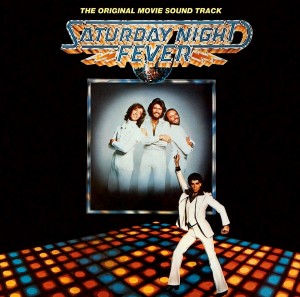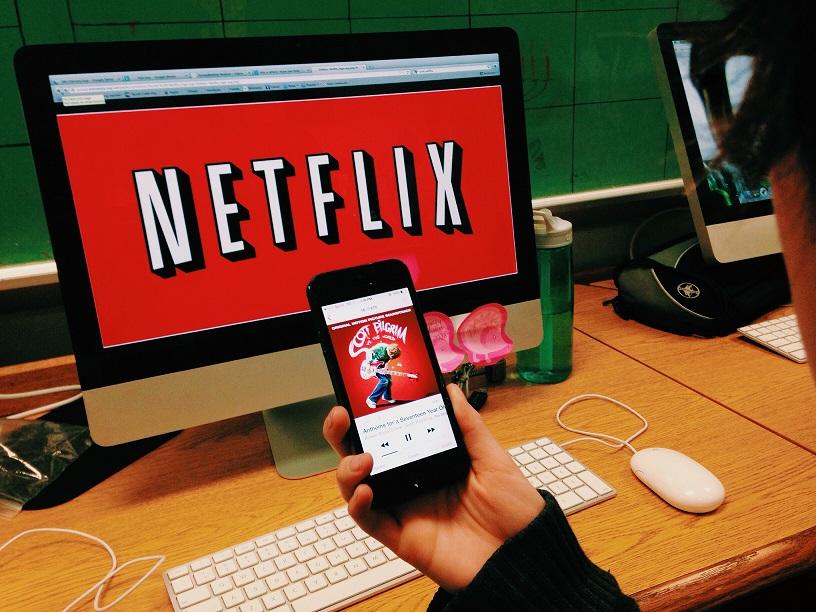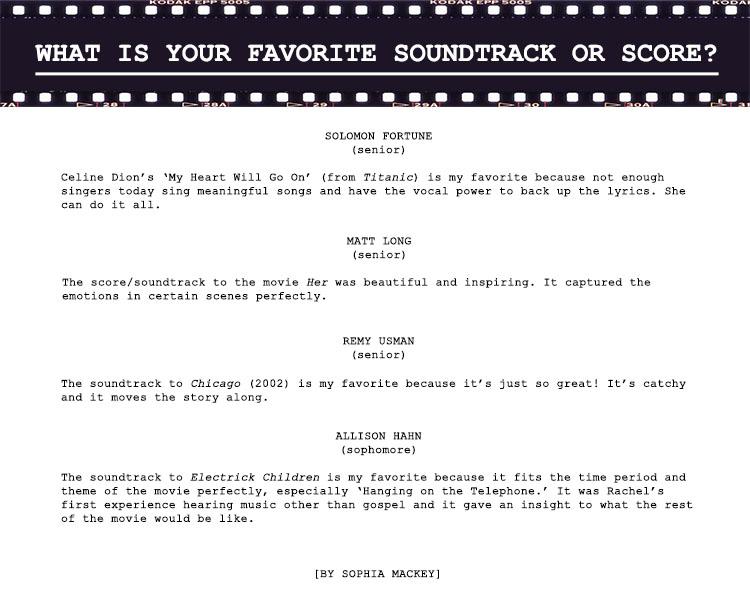Your donation will support the student journalists of North Cobb High School. Your contribution will allow us to purchase equipment and cover our annual website hosting costs.
Not just white noise: soundtracks and scores that elevate film
December 4, 2014
When we anticipate a fight, our minds play the western whistle we all know. When we feel any sort of terrible event will happen in a matter of minutes, we hear that low hum of da-dum da-dum . And when we imagine a scene of absolute terror, that infamous soul-scraping violin screech plays.
While these jingles stick with us, many of us do not know their origin and simply associate them with these cliche scenes. Without Ennio Morricone’s composition of The Good, The Bad, & The Ugly theme song for those pre-brawl scenes, John Williams’ composition of the Jaws theme song for stressful scenes, or Bernard Herrmann’s composition of the Psycho music for horrifying scenes, our minds would play these moments in a deafening silence. In other words, the music makes the scenes.
Philip Ball, author of The Music Instinct, says, “Our response to certain kinds of noise is something so profound in us that we can’t switch it off. Film composers know that and use it to shortcut the logical part of our brain and get straight to the emotional centres.”
Music acts as much more than just an accessory to the scenes, or the movies as a whole. The sounds and songs offer the audience a much more vivid experience than they would have without them.
Helen Stewart, a writer for BBC Arts, says that in 2011, Canada’s McGill University studied music’s effects on the brain and discovered that “the regions of the brain that light up with music are those linked to euphoric stimuli such as food, sex and drugs. Blood flow in the brain is responding to areas associated with reward, emotion and arousal.”
While music may seem like a tiny factor contributing to the mix of movies, by hearing the music, viewers feel the characters, colors, and plot rather than simply viewing them.
This feeling happens because of the background music, or the film score. Musicians compose the score specifically for each film to set a specific tone. The score plays behind the scenes, creeping into viewers’ ears and steering them in the correct emotional direction.
Christopher Crespo, journalist for The Examiner, says that “film themes and scores have burrowed their way into the collective subconscious, but in a much more subtle and less obvious way. And many of the best film scores usually go unnoticed and unheralded, just another tool to bring a film to life. But when you really think about it, sometimes a film score is so much more than just a tool.”
Likewise, scores typically exist as the undercurrent taking us away in the storm.
“Sometimes it’s an enhancement to the point of salvation – the right music can make a bad movie good and a good movie great. And sometimes the right score will change a movie to the point of subversion – just when the movie is going to zig, the music kicks in and it zags,” adds Crespo.
The score says almost as much about the movie as the plot. Because of its effects, creative directors put an immense amount of work into finding the perfect sound to get the correct tone across to their audience. This often involves bringing in other musicians to assist in setting the mood for the audience. Some directors crave a specific sound so much that they have one single artist or band compose the entire score, as opposed to many parties collaborating.
“Even popular musicians are getting in on the gig, as Jonny Greenwood from Radiohead composed the scores for PT Anderson’s last two movies (each of which were great) and Trent Reznor from Nine Inch Nails won an Oscar for his work on The Social Network. This art remains strong for a reason. The ability to get music custom made to fit a scene or character allows directors to get the exact effect they want when creating a film,” says Austin Wellens, journalist for University of Wisconsin’s The Daily Cardinal.
The Social Network Original Motion Picture Score
Along with the score, soundtracks play a major part in affecting audiences. Viewers often confuse the soundtrack with the score. However, unlike scores, soundtracks are not always composed for a specific film. However, both always adhere to the film’s mood or tone.
Megan Leigh, author and editor for Pop Verse, says, “The choice of style of music is integral to creating the mood of the film or TV series … The style of music needs to complement the plot, themes, visual style, and genre conventions. Of course, this could be complementing these features in a traditional way – playing up to expectations – or you could have a soundtrack that jars with audiences expectations completely.”
Leigh mentions The Twilight Saga’s typical “slow, angsty ballads” and Marie Antoinette’s stirring “New Wave 1980’s hits as the musical backdrop for [a] historical film.” While the various directors of The Twilight Saga added quintessential indie teen tunes onto their soundtracks, Marie Antoinette writer-director Sofia Coppola found a way to intertwine an old story with modern songs. Despite their different approaches, the music used accentuated the moods in each film and offered the audience a distinct feeling.
The Twilight Saga Soundtracks playlist
Marie Antoinette Soundtrack
Along with fitting songs, soundtracks tend to include popular hits. These songs are the ones that replay in viewers’ heads for years and turn a single scene into a legendary moment in film history.
For example, we know Judd Nelson walks proudly across the football field with his fist in the air as The Simple Minds sing, “DON’T YOU/ FORGET ABOUT ME/ DON’T DON’T DON’T DON’T.” We know The Bee Gee’s words, “AH AH AH AH/STAYIN’ ALIVE/STAYIN’ ALIVE,” with John Travolta strutting down the city sidewalks in bell bottoms. We even remember The Cheetah Girls regrouping in their matching personality-colored Cheetah-printed sweatsuits, singing, “‘CAUSE WE ARE SISTERS/WE STAND TOGETHER/WE MAKE UP ONE BIG FAMILY THOUGH WE DON’T LOOK THE SAME.”
Whenever these songs pop up on shuffle or come on the radio, somehow the entire scene comes back with it. Suddenly, we crave the entire movie, or at least the rest of the soundtrack. The directors fulfilled their mission in making these songs stick with us from the first time we heard them to when we randomly remember them years later.
“The darkness, the strangers, the anticipation, the warm comfortable embrace of the cinema seat. We’re ready to experience some big emotions and the minute the music booms out, we are on board for the ride,” says composer Neil Brand.

Many consider the Saturday Night Fever Soundtrack as one of the most famous soundtracks in film history. The Bee Gee’s classic songs (like ‘Stayin’ Alive’, ‘More Than A Woman’, ‘Night Fever’, and more) are often used for cliche or parody scenes involving someone who feels a little too cool and stylish. Other movies and television shows that used songs from this soundtrack include: The Simpsons, Chicken Little, The Hot Chick, Madagascar, A Night at the Roxbury, A Goofy Movie, Honey I Blew Up the Kid, and more.
Brands adds, “We have a very deep understanding of what music is doing, and it’s very physical … We can feel it going into our ears via sound waves and it can produce all sorts of physical responses, including in the right circumstances an actual thud to the stomach.”
The songs chosen for the audience add colors to the screen and emotion to the story. Sometimes they leave us feeling invincible, like Bill Medley and Jennifer Warnes’ “(I’ve Had) The Time of My Life” in Dirty Dancing. Other times, they even leave us in tears, like Celine Dion’s “My Heart Will Go On” in Titanic.
“It invites you in. It sort of lets you have the possibility of having some emotion. I’m not telling you what to feel; I’m just sort of saying, ‘Okay, you can feel something’. And I think that makes it actually a great experience when you go to the movies. It’s not about reality; it’s strictly about having an emotional experience … I never try to write something to impose a feeling upon you; I just try to write something that opens the door that you can walk through and if you so feel like it, it lets you feel emotion,” says composer Hans Zimmer.
Imagine Judd Nelson making his way across the field in silence, John Travolta quietly walking down the sidewalk, or the Cheetah Girls just kind of hanging out in similar clothing. These scenes without their songs would leave viewers in the middle of nowhere–not to mention they just seem boring without them.
If a movie leaves the audience singing the soundtrack or humming the score years later, it serves as more than just a movie. If it offers a memory, it provides a full inner experience.
Here’s a playlist of some of the most famous soundtrack songs (BEWARE: May cause random dance sprees and full-on sing-alongs):
Heard a song in a movie, but you don’t know the title? Try and find it here: http://www.tunefind.com/

